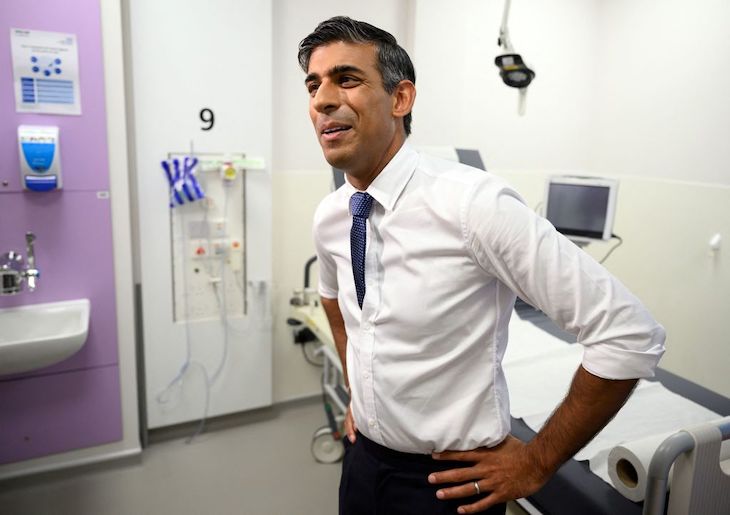Those waiting for the local election results before they look for evidence of Rishi Sunak’s fightback are running late: the Prime Minister has spent the past few weeks making announcements designed to keep his party happy and remind them that they’re supposed to be fighting Labour, not one another. There’s the defence spending announcement, the benefits crackdown, and the passing of the Safety of Rwanda Act. None of these are without risk: the plotters have already demanded even higher defence spending, for instance.
Both sides seem to be holding out for the other to fold
One of the demands it’s reasonably safe to say Sunak isn’t going to give into is ending the junior doctors’ pay dispute by making a 10-12 per cent offer (currently the government has said 8.8 per cent and no more offers). As Katy Balls reported yesterday on Coffee House, the Tory rebels have suggested this higher offer for the first 100 days of a new leader to replace Sunak. There are a number of reasons why they might have added resolving the junior doctor strikes to their list.
Sunak is very personally invested in not giving into the junior doctors’ committee of the British Medical Association, which is seen (even within the BMA itself) as unrealistic and militant. The PM made that clear last August, when he said that the government would not be pushed around by trade unions. The eventual resolution of the consultants’ strikes has added to his case, though they too exasperated the Prime Minister last autumn with what he saw as unreasonable last-minute demands in talks where a deal had seemed close. Sunak also has the protection of the Labour party refusing to say that it would make a more generous offer to doctors, with shadow health secretary Wes Streeting merely arguing that he wouldn’t have ended up in this stand-off in the first place.
The last time there was a protracted junior doctors’ strike, the BMA ended up having to fold after a huge leak of its WhatsApp messages revealed its committee members plotting in a way that angered the wider junior doctor membership. The committee is made up of different people now, but they won’t make that mistake again.
Currently, the government is trying to mollify the wider membership by addressing some of the drivers of this lengthy industrial action which go beyond pay. Health Secretary Victoria Atkins has been announcing plans to give doctors a bit more of a sense that the NHS actually cares about them as people, including more control over their rotas and a review of induction training. The detail of what Atkins has announced so far does not suggest a huge material change in the way that a very demoralised and often quite exploited workforce of junior doctors will be treated by their employer, though. Something will have to give, though both sides seem to be holding out for the other to fold. This means that we may only see a resolution when there is a change of government and the dynamic changes, even if the pay offer doesn’t.







Comments